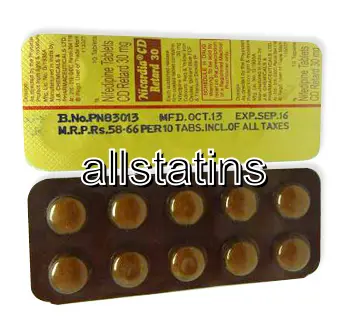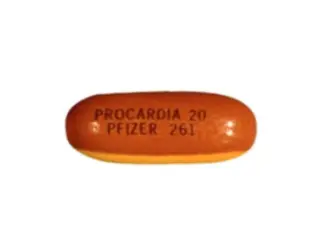| Package | Dosage | Price | Price per Dose | |
|---|---|---|---|---|
| Dosage: 10mg | ||||
| 360 pill | 10mg | NZD604.17 | NZD1.68 | |
| 180 pill | 10mg | NZD328.99 | NZD1.82 | |
| 120 pill | 10mg | NZD239.26 | NZD2.00 | |
| 90 pill | 10mg | NZD200.37 | NZD2.21 | |
| 60 pill | 10mg | NZD152.52 | NZD2.54 | |
| 30 pill | 10mg | NZD89.70 | NZD2.99 | |
| Dosage: 20mg | ||||
| 360 pill | 20mg | NZD720.83 | NZD2.00 | |
| 180 pill | 20mg | NZD397.79 | NZD2.21 | |
| 120 pill | 20mg | NZD299.08 | NZD2.48 | |
| 90 pill | 20mg | NZD257.20 | NZD2.84 | |
| 60 pill | 20mg | NZD194.39 | NZD3.26 | |
| 30 pill | 20mg | NZD122.61 | NZD4.13 | |
| Dosage: 30mg | ||||
| 180 pill | 30mg | NZD774.67 | NZD4.31 | |
| 120 pill | 30mg | NZD559.31 | NZD4.67 | |
| 90 pill | 30mg | NZD457.61 | NZD5.08 | |
| 60 pill | 30mg | NZD346.94 | NZD5.77 | |
| 30 pill | 30mg | NZD203.36 | NZD6.82 | |
| 10 pill | 30mg | NZD77.74 | NZD7.90 | |

Nifedipine Description
Overview of Nifedipine
Nifedipine is a medication commonly used to treat conditions related to high blood pressure and angina, which is chest pain caused by decreased blood flow to the heart. It belongs to a class of drugs known as calcium channel blockers. By blocking calcium entry into the smooth muscle cells of the heart and blood vessels, nifedipine helps relax and widen the arteries. This action reduces the workload on the heart and lowers blood pressure, providing relief from anginal symptoms. Many patients find nifedipine effective for controlling their cardiovascular conditions, but it is important to use it under careful medical supervision.
Effectiveness and Benefits
Patients often report significant improvement in their symptoms after starting nifedipine. It is particularly valued for its rapid action in relieving angina attacks. The medication can also help prevent future cardiovascular events by keeping blood pressure within a healthy range. Its ability to dilate coronary and peripheral arteries makes it a versatile choice for managing different types of angina, including stable and variant angina. Many users notice a feeling of increased energy and reduced discomfort once they adhere to prescribed doses. Additionally, nifedipine has been shown to be beneficial in certain cases of hypertensive emergencies. Patients typically experience fewer side effects when taking the medication as directed, which improves overall treatment adherence.
Potential Side Effects and Risks
Like all medications, nifedipine can cause side effects. The most common include headaches, flushing, dizziness, and swelling of the ankles or feet. These are usually mild and tend to diminish over time. Some individuals may experience a rapid heartbeat or a sensation of palpitations. In rare cases, more serious adverse effects such as allergic reactions, lower than normal blood pressure, or worsening of heart failure symptoms have been reported. It is essential for users to communicate regularly with their healthcare providers to monitor the medication’s impact and adjust doses if necessary.
Usage and Precautions
Taking nifedipine correctly is crucial for maximizing its benefits and minimizing risks. It is typically administered orally in the form of capsules or tablets. The dosage depends on the individual’s condition, response to treatment, and other health factors. Patients should follow their doctor’s instructions carefully and avoid abrupt discontinuation. Certain precautions include informing the healthcare provider about other medications being taken, especially other blood pressure medications or drugs that may interact with nifedipine. People with severe heart problems, liver disease, or allergies to calcium channel blockers should discuss their medical history thoroughly before starting this medication. Regular monitoring of blood pressure and heart function is recommended during therapy.
Conclusion
Overall, nifedipine is a well-established and effective medication for managing hypertension and angina. Its ability to relax blood vessels helps improve blood flow and reduce cardiovascular strain, leading to symptom relief and better quality of life for many patients. However, careful use is essential to avoid potential side effects. Patients should work closely with their healthcare providers to ensure proper dosing and monitor for adverse reactions. When used responsibly, nifedipine can be a powerful tool in the treatment of various cardiovascular conditions, helping individuals maintain their health and daily activity with less discomfort.

